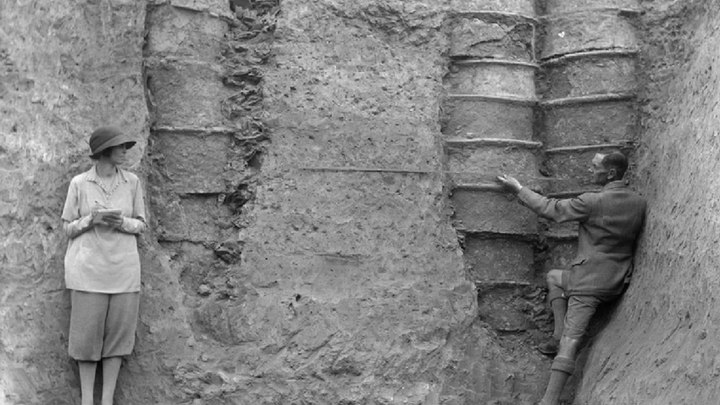Bardella's Candidacy: A New Era For French Politics?

Table of Contents
Bardella's Political Trajectory and Rise Within the RN
From Youth Activist to National Rally Leader:
Jordan Bardella's journey to becoming a leading presidential candidate is a remarkable one. His early involvement in youth politics within the RN laid the groundwork for his rapid ascent.
- 2010: Joined the youth wing of the National Rally.
- 2014: Elected as a regional councilor in Île-de-France at the exceptionally young age of 20.
- 2019: Elected as a Member of the European Parliament (MEP), further solidifying his position within the party.
- 2022: Assumed the role of President of the National Rally, succeeding Marine Le Pen.
These milestones highlight his dedication and strategic maneuvering within the party, ultimately propelling him to the forefront of French politics.
Rebranding the National Rally:
Bardella has played a crucial role in the RN's ongoing image makeover. He's actively worked to present a more moderate, less confrontational face to the electorate, attempting to distance the party from its controversial past. This "RN modernization" is evident in:
- Softening of rhetoric: A shift towards more inclusive language and a de-emphasis on overtly divisive rhetoric.
- Focus on youth engagement: Targeted campaigns aiming to attract younger voters disillusioned with traditional parties.
- Emphasis on economic issues: Shifting the party's focus beyond immigration to address concerns about cost of living and economic inequality.
This rebranding strategy, while controversial within the party's ranks, aims to broaden the RN's appeal and secure a larger share of the vote.
Bardella's Leadership Style and Appeal:
Bardella's communication style is characterized by a blend of youthful dynamism and calculated pragmatism. He projects an image of competence and seriousness, contrasting with the more fiery rhetoric sometimes associated with the RN. His appeal stems from:
- Strong communication skills: Effective use of social media and traditional media to connect with voters.
- Clear policy proposals: Presenting concrete solutions to pressing national concerns.
- Relatability: Appearing less elitist and more in touch with everyday concerns than many other politicians.
However, critics point to a lack of depth in his policy positions and a potential overreliance on populist themes.
Key Policy Positions and Their Impact on the French Electorate
Immigration and National Identity:
Bardella maintains a strong stance on immigration control, emphasizing national identity and security. His proposals, while popular with certain segments of the electorate, remain controversial:
- Stricter border controls: Increased surveillance and enforcement at the borders.
- Curbs on legal immigration: More restrictive quotas and stricter criteria for asylum seekers.
- Assimilation policies: Emphasis on integrating immigrants into French society, prioritizing the adoption of French language and culture.
These policies resonate with voters concerned about security and national identity but face criticism from those who advocate for more inclusive immigration policies.
Economic Policies and Social Welfare:
Bardella’s economic platform focuses on boosting purchasing power, supporting small and medium-sized enterprises (SMEs), and controlling public spending. Key proposals include:
- Tax cuts for businesses and individuals: Reducing the tax burden to stimulate economic growth.
- Targeted social welfare reforms: Reforming existing programs to improve efficiency and ensure they reach those most in need.
- Investment in infrastructure: Modernizing French infrastructure to support economic activity.
The feasibility and impact of these proposals are subject to debate among economists and political analysts.
European Union and Foreign Policy:
Bardella advocates for a reform of the European Union, emphasizing national sovereignty and a more balanced relationship between member states. His vision includes:
- Increased national control over borders and immigration: Pushing back against EU-wide immigration policies.
- Greater focus on national interests: Prioritizing French interests in EU negotiations and decision-making.
- A more assertive foreign policy: Strengthening France's role on the global stage.
These positions align with a Eurosceptic sentiment among a segment of the French electorate, but they also risk alienating France's European partners.
The Potential Impact of Bardella's Candidacy on French Politics
Shifting the Political Landscape:
Bardella's candidacy has the potential to significantly reshape the French political landscape. His strong showing could:
- Force a realignment of political forces: Lead to shifts in alliances and coalition building.
- Fracture the traditional right wing: Attract voters from both the established right and the far-right.
- Influence policy debates: Bring issues such as immigration and national identity to the forefront.
The extent of this impact will depend largely on his electoral performance.
Long-Term Implications for the RN:
Bardella's success or failure will have significant long-term implications for the National Rally. A strong showing could:
- Cement the RN's position as a major political force: Establish the party as a permanent player in French politics.
- Lead to further internal changes: Accelerate the party's modernization and appeal to a broader range of voters.
- Influence future leadership: Shape the party's direction for years to come.
Conclusion: Bardella's Candidacy – A New Chapter for French Politics?
Jordan Bardella’s presidential bid represents a significant turning point in French politics. His rise within the National Rally, his policy positions, and his potential impact on the electoral landscape are all crucial aspects to consider. Bardella's candidacy, whether successful or not, is reshaping the political discussion, forcing a re-evaluation of traditional political alignments. To fully understand the implications of Bardella's presidential bid, further research into his platform, close observation of his campaign, and active participation in political discussions are essential. Engage with the intricacies of Bardella's politics and contribute to a more informed understanding of this pivotal moment in French political history.

Featured Posts
-
 New Uber Pet Service Convenient Pet Transport In Delhi And Mumbai
May 19, 2025
New Uber Pet Service Convenient Pet Transport In Delhi And Mumbai
May 19, 2025 -
 Dallas Wings How To Purchase Paige Bueckers Jersey
May 19, 2025
Dallas Wings How To Purchase Paige Bueckers Jersey
May 19, 2025 -
 Jennifer Lawrence And Cooke Maroney Photos Show Couple Stepping Out Amidst Baby No 2 Reports
May 19, 2025
Jennifer Lawrence And Cooke Maroney Photos Show Couple Stepping Out Amidst Baby No 2 Reports
May 19, 2025 -
 China Trade Truce U S Allies Still Facing Tariff Delays
May 19, 2025
China Trade Truce U S Allies Still Facing Tariff Delays
May 19, 2025 -
 Gazze De Su Ve Kanalizasyon Krizi Anadolu Ajansi Nin Son Raporu
May 19, 2025
Gazze De Su Ve Kanalizasyon Krizi Anadolu Ajansi Nin Son Raporu
May 19, 2025
